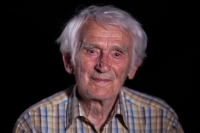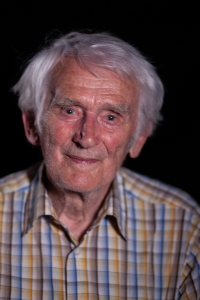We were neighbours, we have a common history. Let us seek understanding, let us act together as equals.

Download image
Oswald Kittel was born on 14 June 1929 into a German family in Česká Kamenice. In 1937-1938, the town was marked by national tensions, Henlein Party activists were active there, and the threat of war was in the air. The newly built Czechoslovak defence line ran about ten kilometres from the Kittel house, but after the Munich Agreement the Czechoslovak soldiers withdrew. Oswald’s father was one of the few Czech Germans who obeyed the Czechoslovak state’s call for general mobilisation. This earned him the distrust of his German superiors, but after the war the family was nevertheless removed from Czechoslovakia. Oswald Kittel had the opportunity to visit the nearby Rabštejn camp, which was a branch of KZ Flossenbürg during the war and was used for the internment of German officials after the war. In the last weeks of the war, Oswald enlisted at the age of less than sixteen and took part in the last battles in the Marienbad region, where he was wounded. After a short stay in American captivity, he arrived home in Kamenice in the middle of May. A month later the family was deported to Saxony, an area occupied by the Red Army, later the German Democratic Republic. The exiles stayed at the border for several weeks, making underground trips across the border to get food; Oswald was nearly shot during one. A trained shoemaker and a student of construction, Oswald lived in the then German Democratic Republic (GDR). He visited his native Česká Kamenice for the first time after the expulsion in 1964. After the fall of the Iron Curtain, he became involved in regional associations and promoted the idea of mutual dialogue between Germans and Czechs.

